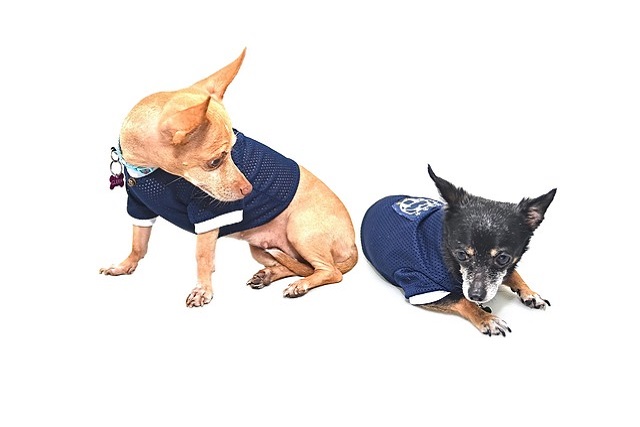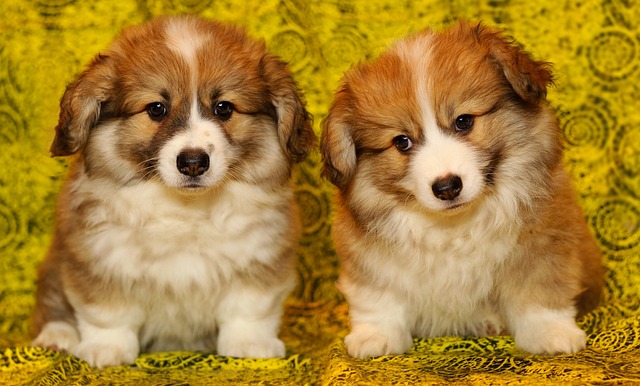
What should I do if there is redness around the eyes of a puppy
The morning light pours into the room through the window, and you prepare to greet the puppy warmly with a "good morning" as usual,
Every time we see a dog wagging its tail in anticipation of a meal, and every time we stroke its soft fur, we know that food is not only necessary for survival, but also a bond that maintains our emotions. A dog's daily nutritional needs are like a sophisticated puzzle, and each piece is indispensable. Understanding these needs is not only the basis for scientific pet care, but also our deepest love and responsibility for our furry children.
Protein is the cornerstone of a dog's life, just like the steel and concrete used to build a high-rise building. As a carnivorous omnivore, a dog's protein needs are much higher than humans. High-quality animal protein, such as chicken, beef, fish, and lamb, contains complete and reasonably proportioned essential amino acids, which are key substances for forming a dog's body tissues, repairing cells, and making antibodies. Puppies are in a rapid growth and development stage and need more protein to support the development of bones, muscles, and organs, just like a seedling that breaks through the ground needs sufficient nutrients to thrive. Adult dogs rely on protein to maintain body functions and stay active. When we choose protein-rich food for dogs and watch them feast on it, we are actually injecting a steady stream of power into their health.
Fat is an efficient source of energy for dogs and an important guarantee for maintaining healthy skin and hair. Omega-3 and Omega-6 fatty acids are the "star members" among them. Omega-3 fatty acids, commonly found in deep-sea fish such as salmon and cod, have a strong anti-inflammatory effect, which can reduce inflammation of the dog's skin and make the hair smoother and shinier. Omega-6 fatty acids help regulate the secretion of skin oil and keep the skin healthy. Imagine that when you stroke a dog, the smooth silky hair passes through your fingertips. Behind this beauty, fat nourishment is indispensable. However, the intake of fat needs to be controlled. Too much will lead to obesity and cause diseases such as diabetes and arthritis; too little will make the dog's hair rough and dull. Every time the proportion of fat in the food is adjusted, it is like a precise calculation about health.
 Carbohydrates provide dogs with the energy they need for daily activities, just like gasoline is indispensable for cars. However, dogs have a weak ability to digest carbohydrates, so they need to choose easily digestible types, such as brown rice, oats, and sweet potatoes. These carbohydrates rich in dietary fiber can not only provide energy, but also promote intestinal peristalsis and help digestion. When dogs run and play on the grass, carbohydrates play a role behind the vitality. However, excessive reliance on carbohydrates will cause dogs to consume too many calories and become overweight. We must not only meet their energy needs, but also prevent nutritional imbalance. The balance in this way hides our full care for dogs.
Carbohydrates provide dogs with the energy they need for daily activities, just like gasoline is indispensable for cars. However, dogs have a weak ability to digest carbohydrates, so they need to choose easily digestible types, such as brown rice, oats, and sweet potatoes. These carbohydrates rich in dietary fiber can not only provide energy, but also promote intestinal peristalsis and help digestion. When dogs run and play on the grass, carbohydrates play a role behind the vitality. However, excessive reliance on carbohydrates will cause dogs to consume too many calories and become overweight. We must not only meet their energy needs, but also prevent nutritional imbalance. The balance in this way hides our full care for dogs.
Although the content of vitamins and minerals in dogs is very small, they play an irreplaceable role. Vitamin A protects dogs' eyesight, allowing them to see this colorful world clearly; vitamin D promotes calcium absorption and maintains bone health; vitamin E acts as an antioxidant to protect cells from free radicals. Calcium and phosphorus in minerals are the main components of bones and teeth. Deficiency can lead to skeletal dysplasia in puppies and osteoporosis in adult dogs. Iron is involved in the transport of oxygen, and zinc maintains the normal function of the skin and immune system. These vitamins and minerals work together like precision gears to maintain the normal functioning of the dog's body. The lack of any nutrient may cause health problems, and we carefully select foods rich in various vitamins and minerals to protect the health of dogs.
Water is the source of life, especially for dogs. About 70% of a dog's body is made up of water, and water is involved in all physiological activities, including digestion, absorption, transportation of nutrients, and excretion of waste. In the hot summer, dogs regulate their body temperature by drinking water; after strenuous exercise, water helps them replenish lost body fluids. It is crucial to provide dogs with clean and sufficient drinking water at all times. Watching the dog stick out its pink tongue and lick the water happily, we know that this cool liquid is nourishing their lives.
Dogs of different ages, breeds, sizes, and activity levels have different nutritional needs. Puppies need more protein and calcium to support growth; elderly dogs have weakened digestive functions and need more easily digestible food; large dogs have higher nutritional needs for joint protection; and active working dogs need more energy. Understanding the characteristics of our own dogs and tailoring nutrition plans for them is our unique love for them.
In the life journey of dogs, every meal is our way of conveying love. From selecting ingredients to carefully preparing, from observing their satisfaction while eating to witnessing their healthy growth, every bit of it is full of our deep affection. Meeting the daily nutritional needs of dogs is not only for their physical health, but also for the hope of extending the time of companionship, so that this warm friendship will become more fragrant in the fireworks of every meal.

The morning light pours into the room through the window, and you prepare to greet the puppy warmly with a "good morning" as usual,

Late at night, moonlight streamed into the room through the window, but the usually lively dog went against its usual routine,

The sunshine shone on the carpet in the living room, but the usually lively and lovely Teddy went against his usual routine,

The chewing behavior of dogs is as natural as wagging their tails to show goodwill. It is not only a way to explore the world, but also an outlet for releasing energy. However, some dog breeds are particularly prone to chewing.

Watching the dog constantly rubbing on the floor, frantically scratching its skin with its paws, its originally smooth fur became messy,

When night falls, a rapid bark suddenly comes from the community, or when we encounter a dog that barks continuously at people while walking,